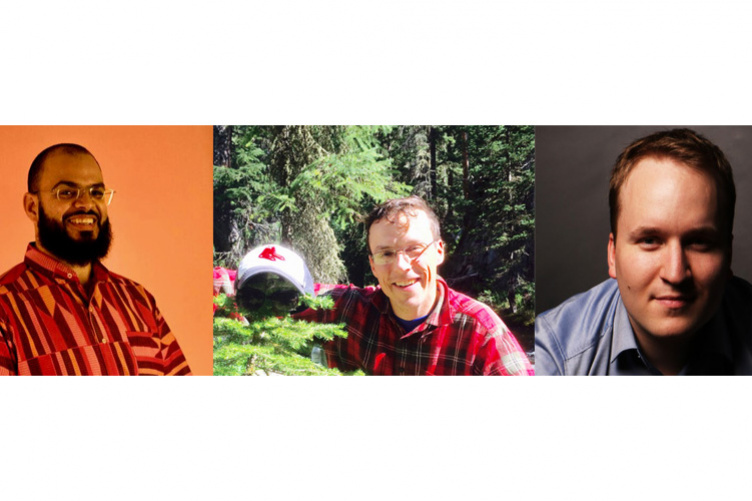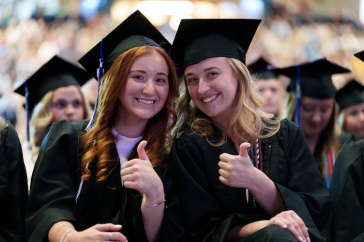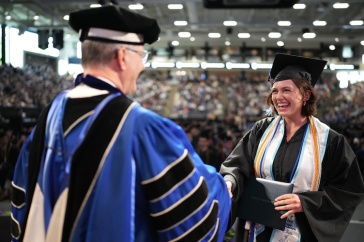
Marino I. Fernandes
Program/Department: English
How does a position of expertise impact a multilingual student’s sense of agency?
It’s the subject of Marino Fernandes’s dissertation, investigating how a writing center called HELP (Hi, English Learning Partner) staffed by non-native English speaking multilingual students and serving non-native English speaking peers affects how all students involved see themselves as writers, and in turn, how those identities affect their sense of agency.
“International multilingual students are often thought of as perpetually in need of remedial language support,” Fernandes said. “Occupying a position of expertise has a forceful impact on their identities that merits exploration.”
For his research, Fernandes draws on ethnographic observation data, narrative inquiry interviews and institutional documents. The goal of the analysis is to upend the idea of multilingual students as helpless subjects on campus and help them create identities in which they recognize they have competencies valued by their communities.
Fernandes, who earned a B.A. in Philosophy from Bridgewater State College and holds a Master’s degree from UNH’s Language and Linguistics program, thinks his research could enrich research and pedagogy in Second Language Writing and suggest reform at the institutional level. After graduating Spring 2019, he hopes to secure a faculty position where his research and teaching support an inclusive education for all students and writers.
Rory P. Carroll
Program/Department: Natural Resources & Environmental Study
Rory Carroll likes to think of himself as a high-tech naturalist.
“While it may seem like a contradiction in terms, I find that using sophisticated tools to explore ecological phenomena is a great way to understand ecosystems,” Carroll said.
Carroll is particularly interested in how human resource use affects wildlife, and his dissertation assesses how a growing human footprint on the New England landscape has impacted bobcats specifically. One element of his research involves using genetics to explore movement patterns and relationships between bobcat populations through time.
“Contemporary bobcat populations are larger than they were historically, but genetically more isolated due in part to major roadways,” Carroll said.
Individual bobcats have become larger over time, too, perhaps due to an increase of human subsidies at the base of the food web and the reintroduction of novel prey species such as the turkey, and so Carroll also analyzes changes in bobcats’ diets across the region the past 60 years.
The last part of his research involves learning how individual bobcats respond to their changing environment.
“Bobcats are increasingly taking advantage of developed landscapes, but some of these areas, particularly suburban and exurban development, may be acting as ecological traps that increase stress levels and decrease fitness in bobcats,” he said.
The DYF gives Carroll the freedom to be with his family in Massachusetts while he finishes his dissertation, and he plans to graduate May 2019. Afterward, he’d like to teach, particularly at a liberal arts school that focuses on education.
“I view teaching as the best way I can use my skills to make long-term positive impacts on society and the environment. I also love my research work in the field and lab, and I plan to use it as a teaching tool wherever I end up,” he said.
Bence Cserna
Program/Department: Computer Science
In practice, safety and speed are often contradicting in terms of autonomous vehicles and robots.
Bence Cserna’s research focuses on developing planners – a software component that determines the actions of autonomous agents – that optimize speed while guaranteeing absolute safety.
The issue becomes more and more important as autonomous vehicles and robots become more widespread in the industry, military and consumer applications.
“The preliminary version of our novel methods were deployed by one of the leading self-driving car companies,” Cserna said. “This allows their cars to not only respond faster, but more importantly, stay safer. Our methods are general and apply to a wide class of autonomous systems.”
Cserna earned an undergraduate and master's degree at Budapest University of Technology in Hungary, where he also worked as a software engineer for three years. Directly afterward, he entered UNH’s computer science program. He plans to graduate May 2019 and afterward would like to continue his research in the autonomous vehicle industry.
-
Written By:
Kristen Melamed | Graduate Admissions
















































